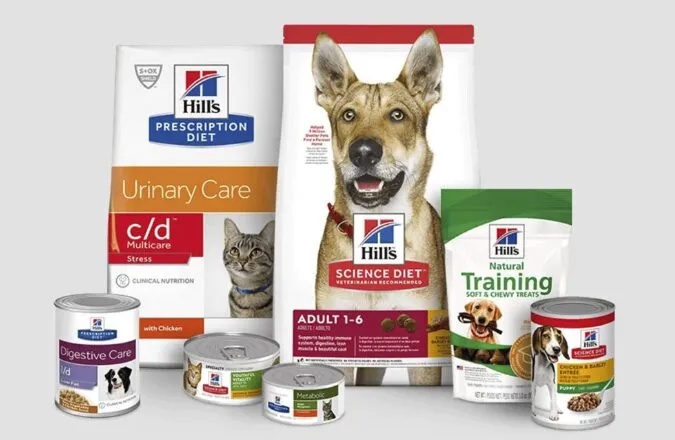Hill’s dog food has long been a staple in the pet nutrition world, frequently recommended by veterinarians for its science-backed formulas. If you’re searching for a reliable Hill’s dog food review, this comprehensive guide covers its history, product lines, ratings, pricing, and more to help dog owners make informed choices.
Founded in 1907 in Kansas by Burton Hill, the company started with animal feed before pivoting to pet nutrition in the 1930s. A pivotal moment came in the 1940s when veterinarian Dr. Mark Morris Sr. partnered with Hill’s to create a specialized diet for a guide dog suffering from kidney disease. This collaboration birthed Hill’s Prescription Diet, pioneering therapeutic pet foods targeting issues like kidney problems, obesity, allergies, digestive disorders, and joint health. These prescription-only formulas are clinically tested and often integrated into vet treatment plans.
In 1976, Colgate-Palmolive acquired Hill’s, fueling expansion and the launch of Hill’s Science Diet—a line emphasizing balanced nutrition for healthy dogs across life stages, breeds, and needs. Hill’s strong ties with veterinary schools and professionals have solidified its reputation, offering educational resources that build trust among pet parents.
 Hill’s Pet Food branding with product bags and nutritional focus
Hill’s Pet Food branding with product bags and nutritional focus
Is Hill’s Dog Food Good for Your Dog?
Hill’s stands out for its veterinary endorsements, but quality varies by line. Hill’s Prescription Diet features 35 dry and 39 wet recipes, available only via vet prescription. Dog Food Advisor doesn’t rate these due to their specialized criteria for health conditions—ingredients are precisely controlled for micronutrients, differing from everyday foods.
Pet nutritionist Laura Ward notes: “These recipes undergo rigorous testing based on scientific studies for specific veterinary conditions, making them unsuitable for healthy dogs but vital for those needing targeted support.”
In contrast, Hill’s Science Diet includes 38 wet recipes (average 2-star rating) and 47 dry ones (average 2.5 stars). Protein levels can be low in some, with controversial additives like menadione (vitamin K source), beet pulp, powdered cellulose, caramel color, and corn derivatives offering limited value. Brewer’s rice and sodium selenite appear frequently.
Laura explains: “Science Diet prioritizes precise nutrient control over fresh or herbal ingredients popular in today’s market.”
For those exploring grain-free or premium alternatives, check out Taste of the Wild dry dog food reviews for options with higher meat content.
Hill’s Puppy Food Options
Puppies require tailored nutrition for optimal growth, and Hill’s addresses this effectively. Hill’s Science Diet Puppy offers eight dry formulas (3.5 to 4.5 stars, averaging 4 stars), suited for small, medium, and large breeds. These include DHA from fish oil to boost brain and eye development, alongside support for bones, muscles, and immunity.
Hill’s Prescription Diet has one dry puppy option: Derm Complete Puppy Rice & Egg, designed for sensitivities, strengthening skin barriers against irritants to minimize itching, scratching, and redness.
Veterinarians often recommend these for their research-backed formulations, drawing from decades of clinical data.
Hill’s Dog Food Pricing Breakdown
Cost varies by line, formula, and size, but here’s a snapshot:
Hill’s Science Diet:
- Small bags (4-5 lb): $15–$25
- Medium bags (15-20 lb): $40–$60
- Large bags (30-35 lb): $65–$90
Hill’s Prescription Diet:
- Small bags (4-8 lb): $35–$55
- Medium bags (16.5 lb): $75–$100
- Large bags (27.5-30 lb): $90–$130
These prices reflect premium positioning, justified by veterinary research, though budget-conscious owners might compare with Taste of the Wild Southwest Canyon reviews.
 Hill’s Prescription Diet and Science Diet bags displayed for comparison
Hill’s Prescription Diet and Science Diet bags displayed for comparison
Recall History for Hill’s Dog Food
As of November 2025, Hill’s has no recorded recalls. This clean record underscores their quality control and commitment to safety, a key factor for discerning dog owners.
How Hill’s Compares to Top Brands
Hill’s excels in therapeutic and vet-recommended nutrition but lags in fresh ingredients compared to some competitors. For instance, while Science Diet averages 2.5 stars, brands like Taste of the Wild often score higher for protein-rich, grain-free recipes.
Explore detailed comparisons:
- Taste of the Wild High Prairie review
- Taste of the Wild Wetlands review
- Call of the Wild dog food reviews
These alternatives provide natural options for healthy dogs, complementing Hill’s specialized strengths.
Final Thoughts on Hill’s Dog Food
Hill’s dog food shines for prescription needs and puppy growth, backed by veterinary science and a spotless recall history. However, everyday Science Diet formulas may not suit those prioritizing high protein or minimal fillers—consult your vet for personalized advice.
Prioritize your dog’s health stage and needs: therapeutic for issues, balanced for maintenance. For more insights, dive into our reviews of top dog foods and share your experiences in the comments.
References:
- Dog Food Advisor ratings and analysis (2025 updates)
- Insights from pet nutritionist Laura Ward, BSc Animal Science
- Hill’s Pet Nutrition official history and product data
